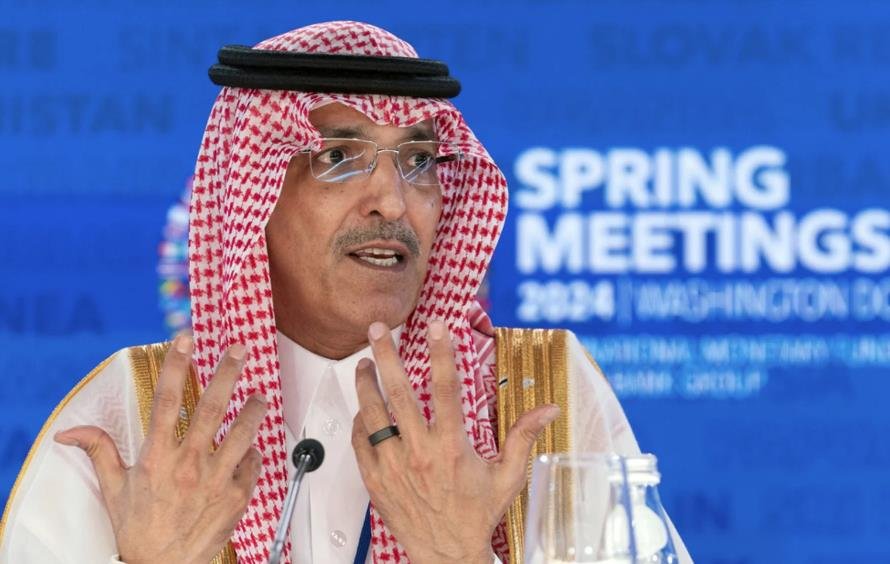Senior officials from the United States and Saudi Arabia are in talks to forge a security agreement that doesn’t hinge on Saudi Arabia establishing formal relations with Israel. This move comes as Israel continues its military operations in Gaza and remains resistant to diplomatic efforts for Palestinian statehood.
Negotiations in Washington: Balancing Interests
Last week in Washington, key US and Saudi officials sat down to hash out the details of a potential security deal. The discussions are delicate, given the current geopolitical climate. Sources from Axios reveal that the talks aim to finalize the agreement before President Joe Biden’s term ends in January. This timeline adds urgency to the negotiations, as both nations seek stability in a tumultuous region.
Saudi National Security Adviser Musaad Bin Mohammed Al-Aiban played a pivotal role in these talks. He met with US Secretary of State Antony Blinken and other top White House officials, including Jake Sullivan and Brett McGurk. Their goal? To find common ground that strengthens security without pushing Riyadh to formalize ties with Israel.
The US has long advocated for Saudi-Israeli normalization, seeing it as a step towards broader Middle East peace. However, Riyadh remains steadfast, linking any potential deal to a resolution of the Palestinian issue based on the 1967 borders with Jerusalem as the capital of Palestine.

Stalling on Normalization: The Palestinian Factor
Riyadh’s position is clear: without a viable path to Palestinian statehood, normalizing relations with Israel is off the table. Saudi Foreign Minister Prince Faisal Bin Farhan reiterated this stance, emphasizing that while Saudi Arabia may agree to certain US proposals, it will continue to champion Palestinian rights.
This firm stance has led to a pause in normalization talks, especially in light of Israel’s ongoing military campaign in Gaza. The conflict has not only heightened tensions but also underscored the complexities of achieving a diplomatic solution that satisfies all parties involved.
Prince Faisal highlighted that any advancement of US agreements would still prioritize the Palestinian cause. This means that while security cooperation between the US and Saudi Arabia is on the table, broader normalization with Israel remains a secondary issue contingent on peace efforts in Palestine.
Upcoming Arab and Islamic Summit in Riyadh
Adding another layer to the situation, Saudi Arabia is set to host an Arab and Islamic summit in Riyadh on November 11. The summit aims to address Israel’s actions in Palestine and Lebanon, urging the international community to denounce the violence.
This gathering will bring together leaders from various Arab and Islamic nations to discuss a unified response to the ongoing conflicts. The focus will be on condemning the violence and seeking ways to support peaceful resolutions. Saudi Arabia is positioning itself as a mediator, hoping to leverage the summit to advance its stance on Palestinian statehood.
- Condemnation of Violence: Unified call against ongoing military actions.
- Support for Palestinian Statehood: Emphasis on establishing Palestine based on 1967 borders.
- International Cooperation: Encouraging global powers to play a role in peace efforts.
The summit underscores Saudi Arabia’s commitment to regional stability and its role in advocating for Palestinian rights. It also highlights the kingdom’s strategic approach to balancing its security interests with its diplomatic and humanitarian concerns.
Implications for US-Saudi Relations
The potential security pact between the US and Saudi Arabia, without the prerequisite of Israeli normalization, signifies a shift in diplomatic strategy. It reflects a willingness to collaborate on mutual security interests while respecting Saudi Arabia’s conditions regarding Palestine.
This approach allows the US to maintain its influence in the region and strengthen its alliance with Saudi Arabia without forcing a contentious normalization with Israel. It also provides Saudi Arabia with a way to enhance its security infrastructure and cooperation with a key global ally.
However, this move may have broader implications. It could impact US relations with Israel, which has been a cornerstone of American Middle East policy. Additionally, it sends a message to other regional players about the US’s flexible approach to alliances based on current geopolitical dynamics.
Potential Outcomes:
- Enhanced Security Cooperation: Joint efforts to counter regional threats.
- Diplomatic Balance: Maintaining alliances without forcing contentious normalization.
- Regional Stability: Contributing to a more stable Middle East through strategic partnerships.
Ultimately, the success of these negotiations will depend on the ability of both nations to align their interests and navigate the intricate landscape of Middle Eastern politics. The coming months will be crucial in determining the trajectory of US-Saudi relations and their impact on the broader quest for peace in the region.
